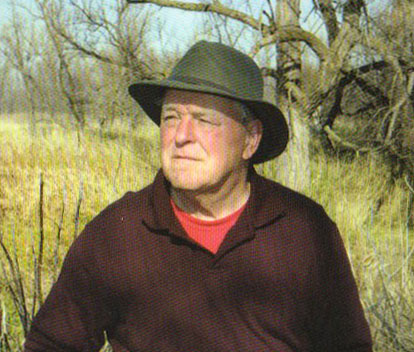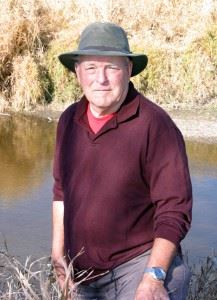
Dr. Joseph Anthony Amato, a retired and celebrated SMSU professor, passed away on Jan. 24, 2025, at the age of 87.
As a former Rural History and Regional Studies professor at SMSU, Dr. Amato’s scope of knowledge did not stop at the door of the agronomy department; It extended on subjects from rural, regional, and European history to the likes of the artistic, abstract spaces of dreams and ideas. He received his BA, MA, and PhD at the University of Michigan (1960), Université de Laval in Québec (1963), and University of Rochester, New York (1970) respectively.
A known lover of books and committed scholar, Dr. Amato could often be found writing books on various topics. He published over 30 scholarly works in his lifetime spanning from subjects of golf (“‘Golf Beats Us All’”) to murder (“‘When Father and Son Conspire: A Minnesota Farm Murder”). Dr. Amato’s works can be read at the Lyon County Museum in Marshall, MN, which possesses a copy of every one of his publications.
Raised in Detroit, Amato was the descendant of Sicilian immigrants. His grandparents in Wisconsin were the catalysts to his insight into the importance of leading a life in rural America, as well as the sacrifices that came with it. It was this insight that would encourage him to pursue the sentiment that, “so much could be brought to consciousness,”, quoting Amato on the nature of rural America from an interview with Pioneer PBS for the “Postcards” program. “You are the place you live, and the place you live feeds you,” he continued, expressing a desire “…to return the favor of feeding rural Minnesota.”

Amato began teaching at SMSU in 1969, back when it was called Southwest State University, retiring in 2003 after 34 years of impactful and considerable fortification of the University’s history program,- namely in solidifying a curriculum that is still used today.
Dr. Joseph Amato will be missed by many members of the academic and local community. “He was one of the leaders in the faculty in terms of pushing new curriculum ideas; Joe was a big supporter of rural studies,” says Dr. Gerald Toland, who had come to know Amato from faculty meetings; Amato always made it a point to attend. Asking about his personal relationship with Dr. Amato, Dr. Toland described the man as “A great colleague with a great sense of humor. When you were in a conversation with Joe, you knew you were learning something new, or took a sincere interest in, and would ask about the projects of others.” Following his retirement the two professors fell out of touch, as Joseph Amato and his wife, Cathy, had moved to the cities for accessibility to better healthcare for his wife Cathy, who passed away in 2021.
The Amato’s brought up four children; one of whom teaches here on SMSU’s campus. Dr. Anthony Amato, who expresses that his pursuit of social science was inspired by his father— going as far as to say that without his father, he would not have gotten his PhD. I sat down with Dr. Anthony Amato to discuss his father’s legacy and his impact on the educational world at length; to gain insight into something that he’d want people to take away from his father’s life and work.
“Two takeaways,” he began, “one: people can come from humble beginnings and make something of themselves in the world of ideas”, further emphasizing the sentiment shared by his father; “ Ideas do matter. That’s so important. In cases where people say, ‘ideas don’t matter,’ they still matter, it’s just that some people have a monopoly on ideas to keep others from thinking.”
Dr. Joseph Amato was regarded as a very down-to-earth individual—- someone who was well- traveled, well- versed in the harsh realities that rural living, and, beyond that, the world, can possess. He was also known as a man who, in his pursuit of desiring to carve out a history for Southwest Minnesota, insisted upon leaving room to dream.
